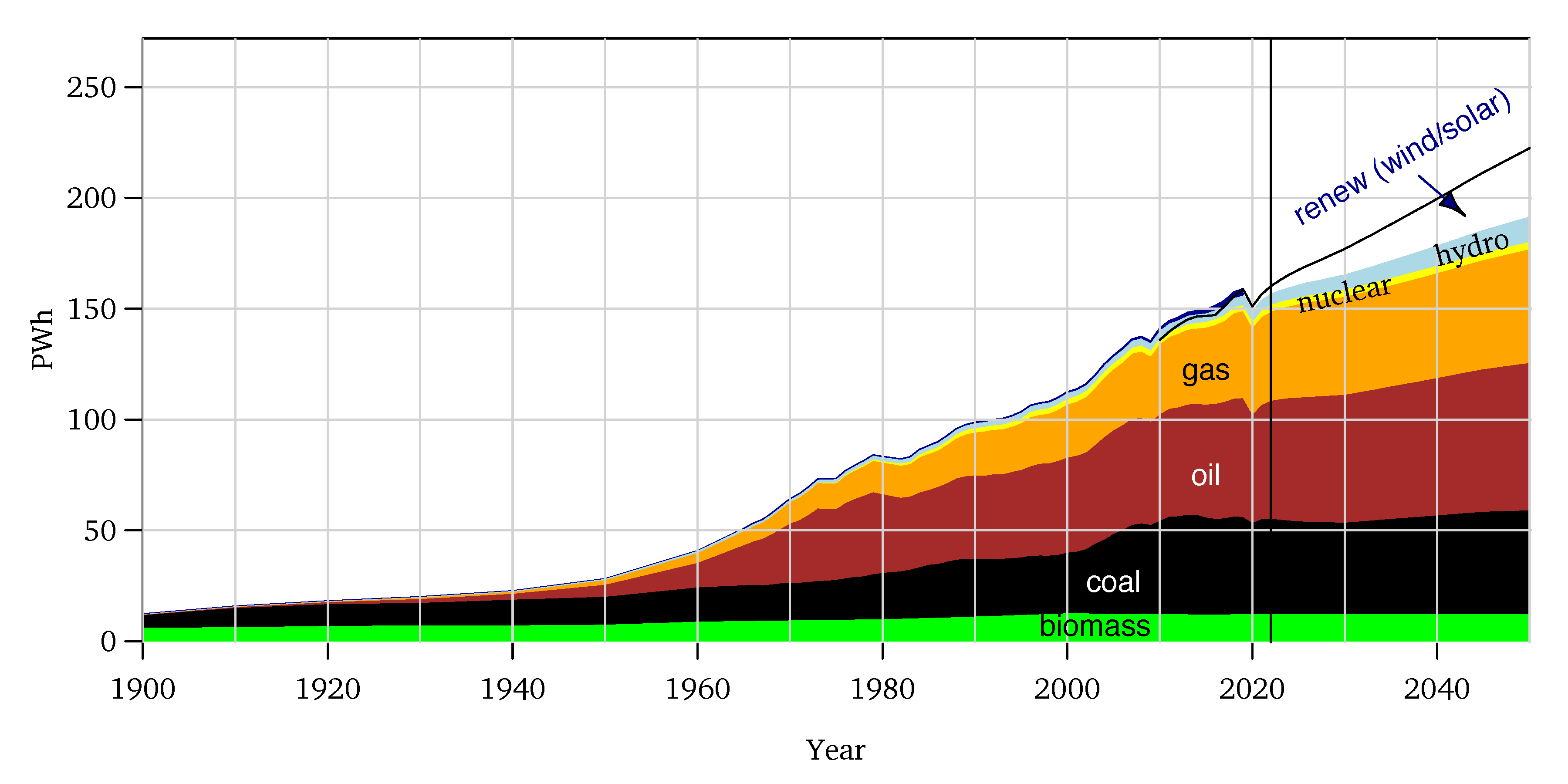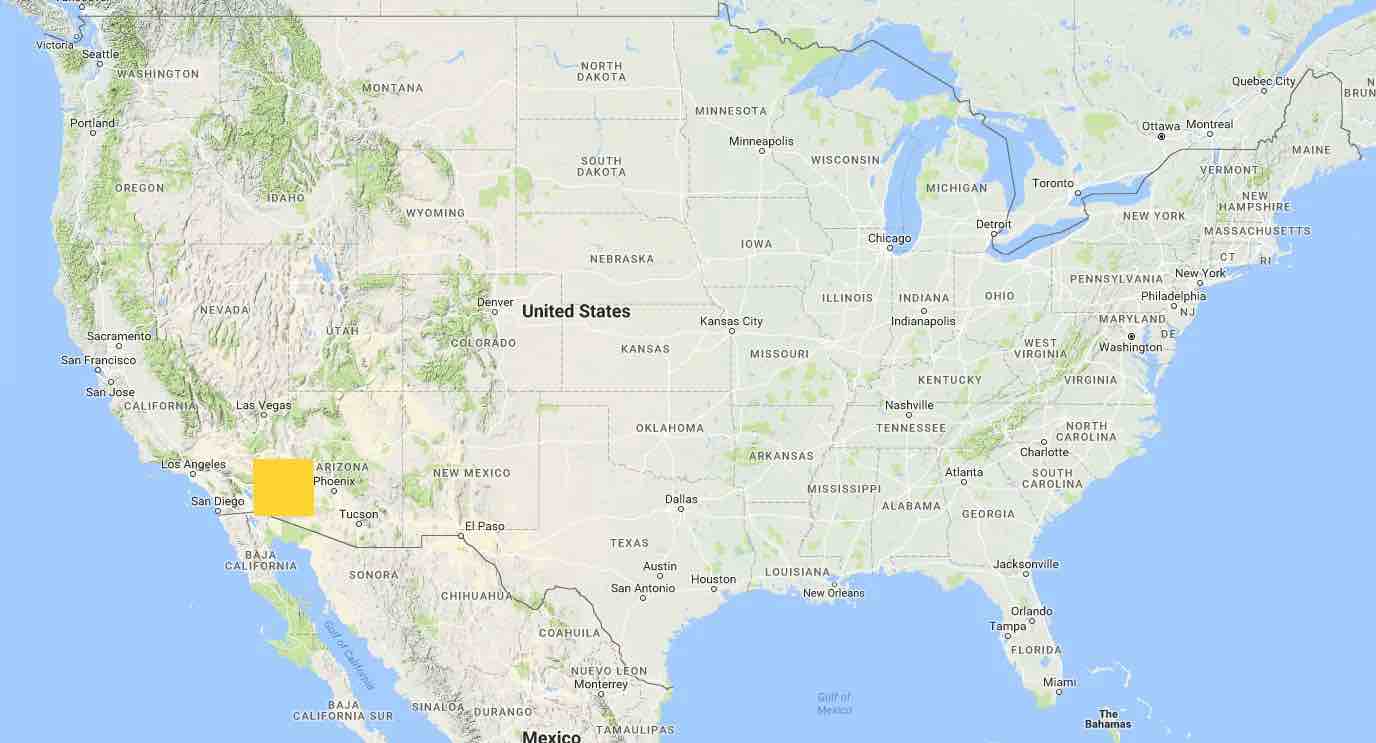Situation Today

Fossil Fuels
-
Here now and cheap.
-
Existing infrastructure:
-
gas and oil is cheap to ship,
-
and easy to store.
-
-
Limited disaster potential:
- kills more steadily, not very saliently.
-
Fossil fuels make great heat engines,
- but poor electricity and kinetic engines.
Basic Alternative Fuels / Stores
-
Hydrogen
-
Batteries
-
Nuclear
More details in next chapters.
1. Hydrogen
-
Lighter but less dense (lower per m$^3$)
-
Best for airplanes and ships far off the grid.
-
Will need new designs, but not terribly novel.
-
-
Flammable (better and worse than gasoline).
-
Similar but more corrosive than natgas.
-
Storable like natgas
Hydrogen’s Deadly Problem
Cost!
Hydrogen’s Deadly Problem
-
Clean hydrogen costs about 10x as much as natgas
- could come down to 2x in 30 years?!
-
Who wants to pay “only” twice as much?
-
Think competitive industries.
-
Think Expedia airplane trips
-
Think shipping containers.
-
Better catalysts? Cheaper electricity inputs?
2. Nuclear Power
- Clean reliable power
except when plant blows up.
Nuclear Power Safety
-
Safest plants ever built, but not safe enough.
-
1 core melt-down per 4,000 reactor years.
-
Unknown problems always creep up.
-
Disasters can be terrible.
-
Hard to control human agency problem:
-
Make 100x profit using 5c screw as $5 screw.
-
Who will check later?
-
Screw changes risk from 1/100m to 1/99.99m.
-
-
Nuclear Power Safety
-
How safe is safe enough?
-
Even overall, could make twice the profit allowing 1-in-3,000 over 1-in-4,000?
-
What company and manager wouldn’t want to outperform others and be promoted?
-
Inspect (or falsify reports)?
- Much easier to conquer atom than humans!
-
Watch HBO Chernobyl miniseries.
-
Safety Considerations
-
Human Operations Error:
-
we need nuclear plants where operator can no longer even intentionally blow up the plant,
-
no matter how hard they try.
-
Better Than Fossil Fuels?
-
Fossil fuels kill hundreds of thousands
-
every year, but not with big bangs,
-
and scary radioactivity.
-
-
Since 1960, nuclear has killed $\approx$ 100,
-
almost all in Chernobyl.
-
Devastation in Fukujima is from Tsunami, not from nuclear plant core meltdown!
-
Radiation is not as bad as public imagines it.
- It truly depends on dose.
-
Nuclear Power Regulation
The Regulator’s Problem:
-
Companies that want to go to 1 in 3,000,
-
and know more than the regulators.
-
What does a bureaucrat get for:
-
Type-I error?
-
Type-II error?
-
wanna become famous? only one way…
Innovation And Improvement
Nuclear Regulatory Commission, 1975:
-
Need better regulation.
-
More regulation is not better regulation.
-
No new designs both completed and built
-
Some slightly better designs were finished.
- Better safety features than older designs.
-
About to change (Terapower Wyoming)
- FOAK costs, experience, etc.
Nuclear Fusion Plants
-
Completely different physics.
-
Power source of the sun, infinite supply.
-
Don’t drink the Cool Aid.
-
Ironically, economically just like fission:
-
very high fixed costs,
-
very low marginal costs,
-
near infinite supply of fuel.
-
-
Except
-
fusion plants cannot blow up, more like flame very difficult to sustain.
-
less radioactivity at end of life (EOL)
-
No panacea, but good to research.
Eol Nuclear Waste Problem?
-
Spent Fuel-Rod Disposal
-
but could be reused 1,000x more in breeder reactors, which no one wants to license,
-
and government has guaranteed disposal.
-
-
PS: Fossil Fuels have same problem,
-
but public does not seem to care as much;
-
much stronger lobby for fossil fuels!
-
Perfunctory: Feds collect nominal amounts.
-
Biggest Nuclear Problem
-
Huge Fixed Cost: Think $20b/plant.
- plus maybe cost overruns.
-
Think 10 years to build.
-
Could be obsolete at opening,
-
while suffering new regs along the way,
-
or be so unpopular as not to be licensed.
-
- Who wants to gamble their retirement funds?
3. Batteries
-
Very low energy density.
- Think 5% of fossil fuels.
-
Never useful for heat.
- Make heat first and store heat!
-
Battery capacity on grid is tiny.
-
Think 10 minutes of storage.
-
Even hydro storage is much more.
-
Only useful for niche applications sofar.
-
Today’s Lithium Batteries
-
Best and dominant technology
-
Very lightweight (great for cars)
- Highly explosive when exposed to humidity.
We will cover batteries in the next chapter.
Cool Aid: Green Tech
-
Even technologies working in the lab usually fail to work in the real world.
- Think 1 in 10 will ultimately make it.
-
Fortunately, civilization has 20 draws.
-
R&D investment is large and risky,
- also because another stealth green company could solve problem even better.
-
Better to research, develop, or deploy now?
Cool Aid: Fossil Fuels
-
FUD. Attack critics.
-
Huge lobbying engine and political power.
-
Fossil fuels have enjoyed huge subsidies.
-
Think half-truths and non-sense:
-
mix liberally,
-
repeat often.
-
If it’s a lie, then we fight on that lie — Slim.
A lie ain’t a side of a story. It’s just a lie — Gus.
Attack Vectors
-
Blacken green alternatives
-
Point out unimaginably large numbers
-
Of course it’s big—including the problem.
-
Ignorant public is easy target.
-
(PS: also true for green proponents.)
Space Requirements
-
Green Tech requires too much space:
- Size of Massachusetts!
-
Yes and no.
-
Space is not a constraint, except inside cities.
-
Think instead size of land for agriculture.
- need only <5% thereof and elsewhere.
-
Space Needs For Solar

Dig, Recycle, Etc.
-
WSJ OpEd: Get ready digging.
-
Of course yes, but so do fossil fuels:
-
Real(istic) EOL consequences of fossil fuels have been terrible!
-
So are the ongoing local health effects.
-
-
Worst comes to worst, landfill wind turbines.
-
But critique is cosmically good
- better designs with recycling in mind.
Tire Mountains, 1970s

Limited Clean Materials
-
Cobalt, Lithium are in short supply.
-
Yes and No.
-
Cosmic Nonsense:
-
Just cheapest and best first solutions.
-
Chemistries will be much better and cheaper in 30 years.
-
Unfair Government Subsidies
-
Clean energy is indeed getting subsidies,
-
but not nearly as much as fossil fuels have gotten over the decades.
- (and this does not even consider the pollution externalities, which we should add in, because we have not charged them for it.)
Conclusion
-
Fossil fuels are not easy to replace,
-
but they are not irreplaceable.
Technology alternatives to be explained next.